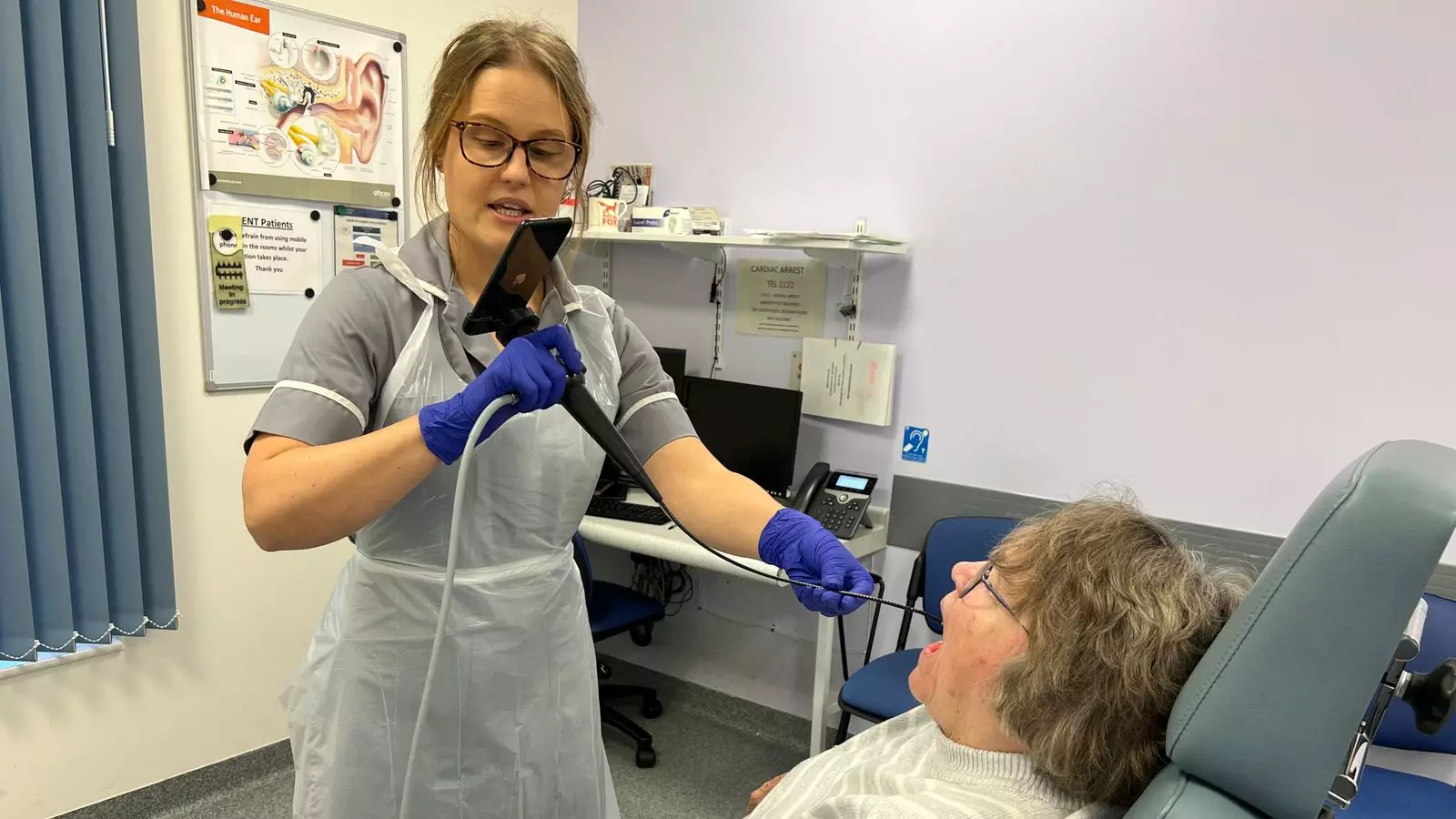In an age where technology and healthcare intersect more than ever before, the UK’s National Health Service (NHS) is pioneering a groundbreaking trial of an innovative iPhone adapter designed to expedite the diagnosis of throat cancer. This device is not only improving the efficiency of medical examinations but also has the potential to significantly ease the anxiety that accompanies waiting for test results. With the pressing need for faster and more thorough cancer screenings, developments like this could prove to be lifesaving for many patients.
The endoscope-i adapter connects directly to iPhones, transforming them into advanced medical diagnostic tools. This portable gadget is equipped with a 32mm lens endoscope eyepiece and a supporting application that allows healthcare professionals to capture high-definition video footage of patients’ throats. Traditionally, diagnosing throat cancer involves a time-consuming endoscopy, requiring a lengthy waiting period for results. The new technology streamlines this process, enabling healthcare workers to share real-time footage with specialists. This facilitates quicker assessments and reduces the burden on conventional hospital resources.
The potential implications of this device are extensive. In preliminary trials conducted by the North Midlands University Hospitals NHS Trust, over 1,800 patients deemed to be at low risk received reassurance in less than 24 hours. Moreover, the device was successful in detecting cancer in approximately one out of every hundred patients tested, with no malignancies overlooked. Such efficiency could drastically diminish patient anxiety and aid in early intervention, which is critical in increasing the survival rates of cancer patients.
Dr. Cally Palmer, the national cancer director at NHS England, emphasizes the importance of early detection in treating cancer effectively. “Detecting cancer early is key to providing treatment as soon as possible,” she stated, underscoring how rapid evaluations can significantly enhance patients’ chances of survival. Patients who undergo tests for suspected cancer often face immense stress and uncertainty; therefore, delivering prompt results can not only alleviate concerns for individuals but also offer peace of mind to their families.
The societal implications of a faster diagnostic process are profound. Annually, there are approximately 250,000 urgent referrals for suspected head and neck cancers within the NHS, yet only about 5% of these cases are confirmed as cancer. With such a high rate of unnecessary referrals and follow-ups, the integration of technologies like the endoscope-i adapter into community diagnostic settings can minimize hospital visits, freeing up vital resources while swiftly addressing public health concerns.
The feedback from individuals who have utilized the device in trials emphasizes its importance. Janet Hennessy, a 76-year-old participant, described the device as “absolutely brilliant.” Before this technology, patients often experienced protracted waiting periods filled with anxiety. Janet’s sentiments echo a widespread desire for quicker results that relieve stress and uncertainty.
Conversely, some patients face life-altering challenges upon diagnosis, as seen in the case of Kyle Jones. Initially, Jones sought medical advice due to a seemingly benign symptom: a hoarse voice. However, receiving a cancer diagnosis was a shocking revelation. With the aid of the endoscope-i adapter, specialists were able to conduct thorough examinations, leading to timely interventions—such as the removal of his voice box—which could have been more complicated had there been delays in diagnosis.
The NHS’s trial of the endoscope-i adapter marks a significant advancement in the realm of medical diagnostics, particularly for throat cancer. As technology continues to evolve, integrating innovative tools into healthcare practices can improve patient outcomes dramatically. By providing faster and more accurate diagnoses, the NHS not only alleviates the burden on hospitals but also affords patients peace of mind during what can be an incredibly distressing time.
With promising results from initial trials, there remains an optimistic outlook regarding the widespread adoption of this technology. If successful, such devices could redefine the landscape of cancer diagnostics, transitioning from conventional practices to cutting-edge technological solutions in the fight against cancer.

Leave a Reply